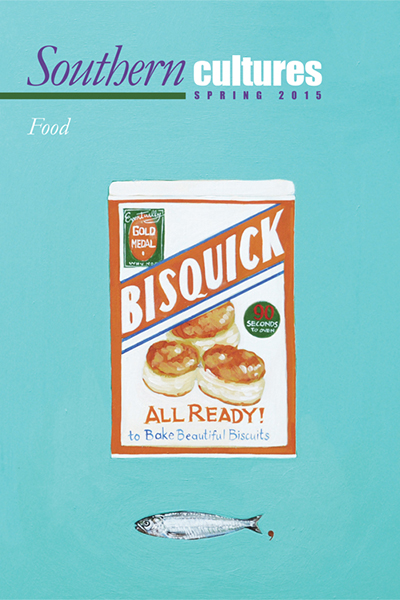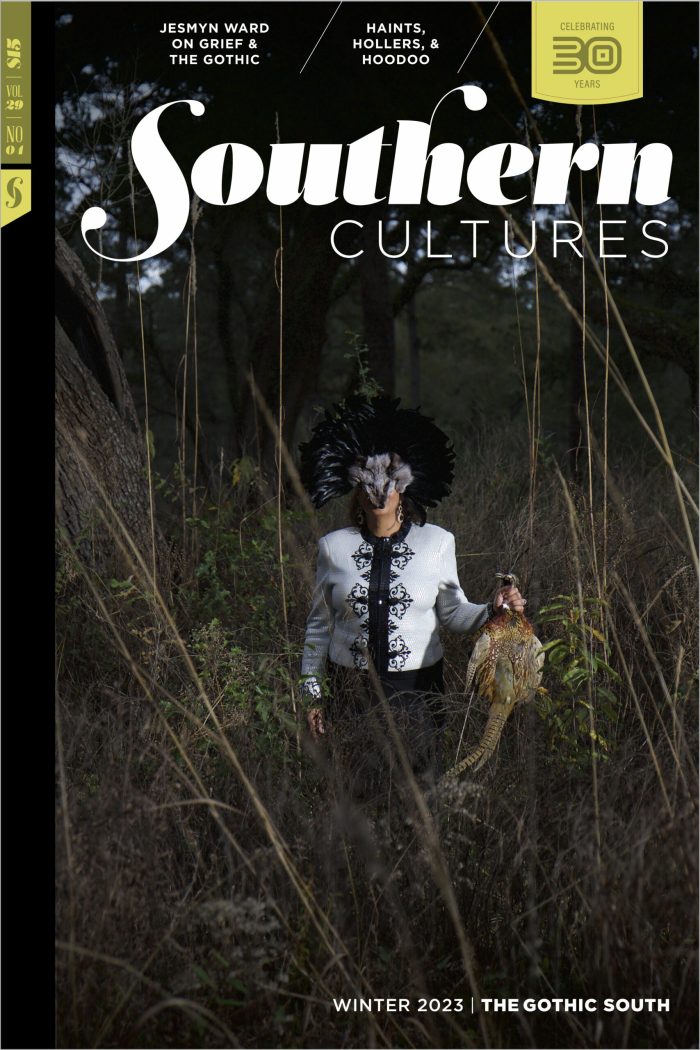by Harry L. Watson
“[Y]ou can’t cheat time; age brings its changes, large and small, and we are no exception.” Faithful readers will remember that we celebrated Southern Cultures’s twentieth birthday last year. It was a banner year, full of exciting programs, special issues, and happy memories. But you can’t cheat time; age brings its changes, large and small, »
by Marcie Cohen Ferris
“A multi-layered past and present underlies these foods and explains why southerners eat the way they do, and why we think of these foods as deeply southern. Food is history. Food is place. Food is power and disempowerment.” Two “moments” help explain my interest in bringing food to the pages of Southern Cultures. The first »
by Amy C. Evans
“Pearl spiked her drink. And then I made a painting about it.” Pearl spiked her drink. And then I made a painting about it. I like to think of my paintings as portraits, each one a document of a specific moment in someone’s life. But the people are strangers, and their stories are told in »
Food
Agency and Aesthetics in Southern Home Canning
by Danille Elise Christensen
“‘That’s all I wants to do . . . to find something to can. I can stay in the kitchen from morning ’til night canning—’if I can find something to can, and have the jars, and the tops—’good tops, and lids. I loves to can.'” In a 2008 ethnographic celebration of American county fairs, Drake »
Photo Essay
by Tom Rankin
I was in second grade in Kentucky when my friend Bobby invited me to spend Friday night with him and go fish a farm pond the next morning. His father, a long haul truck driver, was off work for the weekend and drove us some thirty miles out of town where we baited simple bream »
Food
Marketing St. Augustine, Florida’s Datil Pepper
by Anna Hamilton
“‘My husband likes to say . . . ‘We’re not just another hot sauce, we’re 400 years of history.'” Datil peppers sun on five bushes by the pool in Mary Ellen Masters’s backyard next to Faver Dykes State Park—a wild, scrubby preserve in south St. Johns County, Florida. Masters, whose family has lived in the »
by Elizabeth S. D. Engelhardt
“In recent years, food journalists, scholars, chefs, and devotees have scoured the corners, real and metaphorical, of the U.S. South in search of heritage, artisan, and rare but representative food cultures and practices. Lard has been rehabilitated; Brunswick stew fought over; early bean, pig, and fruit lines have been debated; almost everything has been pickled, »
by Sara Wood,
Malinda Maynor Lowery
“Lumbees are not a stereotype. We’re Indians, southerners, and Americans, all at once and without doubt . . . We don’t forget, even though others have largely forgotten, the role of Indian people in creating what we now know as ‘southern’ food.” In the 1990s I made a short documentary film about Lumbee Indian gospel »
Food
by Bernard L. Herman
“‘I would say the average age of most people that buy spot now is probably sixty. Nobody young comes in this door and buys a box of fish.'” Late summer the phone rings in the Bayford Oyster House on the Eastern Shore of Virginia. “Bayford,” H. M. Arnold answers. “Yes ma’am,” he says a few »
by Marianne Gingher
“Pies and cakes, pies and cakes. If I merely baked cookies, well, that was slumming.” In the beginning, he acted like a man who hadn’t eaten a home-cooked meal in twenty years. His first wife had been too unhappy to cook and the second one, too angry. He couldn’t get over my cooking. He didn’t »
by Michael McFee
“darkness lends its seasoningto every cast-iron skillet . . .” My mouth won’t ever forget her skill with a skillet,my father’s mother, cookingwith her mother’s skillet.





